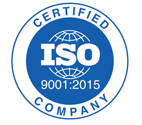
As a quality manager in the medical device or pharmaceutical manufacturing industries, you surely understand the importance of planning ahead for FDA inspections. You want to be sure that, before the FDA investigator even enters your facility, both your staff and facility are meeting all quality standards.
You might already invest time in 360-degree talent assessments, extensive trainings, and mock recalls, but above all you should study and learn from the mistakes of your peers. As warning letters, FDA 483s, and recalls are issued around the industry, the FDA makes the information available to the public. Reviewing the FDA’s findings during other inspections can help ensure you don’t make the same costly mistakes. Below is a roundup of some of the FDA warning letters that were sent to pharmaceutical and medical device manufacturing facilities in September 2017.
Meridian Medical Technologies, Inc. a Pfizer Company
The U.S. Food and Drug Administration (FDA) inspected the Meridian Medical Technologies manufacturing facility in Brentwood, Missouri, from February 20 to March 24, 2017. The products manufactured at this facility are combination products under section 503(g) of the Federal Food, Drug, and Cosmetic Act (FD&C Act), 21 U.S.C. 353(g) as the products include drug and device constituent parts.
The warning letter summarizes significant violations of current good manufacturing practice (CGMP) requirements for combination products. See 21 CFR part 4, 21 CFR parts 210 and 211 (drug CGMP), and 21CFR part 820 (Quality System or QS Regulation).
During the inspection, the FDA investigators observed specific violations including, but not limited to, the following:
Drug CGMP Violations
1. The firm failed to thoroughly investigate any unexplained discrepancy or failure of a batch or any of its components to meet any of its specifications, whether or not the batch has already been distributed (21CFR211.192).1
2. The firm failed to establish and follow adequate written procedures describing the handling of all written and oral complaints regarding a drug product (21 CFR 211.198(a)).2
QS Regulation Violations
The FDA inspector also noted several QS Regulation violations, including:
1. Failure to adequately analyze processes, work operations, concessions, quality audit reports, quality records, service records, complaints, returned product, and other sources of quality data to identify existing and potential causes of nonconforming product, or other quality problems. Appropriate statistical methodology shall be employed where necessary to detect recurring quality problems, as required by 21 CFR 820.100(a)(1).3
For example:
Causes of Nonconformities: The firm did not distinguish between the different failure modes of rejected components/units that are collected in reject bins on the EpiPen manufacturing assembly line.
Process Capability Analysis: The firm did not use appropriate statistical methodology for process capability in order to analyze the quality of production machinery output at critical process steps and to detect recurring quality problems.
Statistical Methodology and CAPA: The firm did not employ appropriate statistical methodology for analyzing complaint trends to identify recurring quality problems and/or existing and potential causes of nonconforming product.
2. Failure to adequately establish and maintain procedures for verifying the device design, as required by 21 CFR 820.30(f). Design verification shall confirm that the design output meets the design input requirements. The results of the design verification, including identification of the design, method(s), the date, and the individual(s) performing the verification, shall be documented in the DHF.
3. Failure to adequately establish and maintain procedures for validating the device design. Design validation shall ensure that devices conform to defined user needs and intended uses. Design validation shall include risk analysis, where appropriate, as required by 21 CFR 820.30(g).
Repeat violations at facility
In a previous inspection of the Meridian Medical Technologies facility from October 12 to November 25, 2014, the FDA cited similar CGMP violations. The firm proposed specific remediation for these violations in a December 17, 2015 response. These repeated failures demonstrate that the facility's oversight and control over the manufacture of these products is inadequate.
Conclusion
The FDA concluded that the facility must correct the violations cited in the warning letter promptly. Failure to promptly correct these violations may result in legal action without further notice, including, without limitation, seizure and injunction. Unresolved violations in the warning letter may also prevent other Federal agencies from awarding contracts.
Until these violations are corrected, the FDA may withhold approval of applications listing the facility and may re-inspect to verify that the corrective actions have been completed. (Source)
Wuxi Medical lnstrument Factory
The U.S. Food and Drug Administration (FDA) inspected the Wuxi Medical Instrument manufacturing facility in Xibei Town, Wuxi City, Jiangsu, China from March 6 to 10, 2017. Due to their findings, they submitted a warning letter summarizing significant violations of current good manufacturing practice (CGMP) regulations for finished pharmaceuticals. See 21 CFR, parts 210 and 211.
Because the methods, facilities, or controls for manufacturing, processing, packing, or holding do not conform to CGMP, the facility’s drug products are adulterated within the meaning of section 501(a)(2)(B) of the Federal Food, Drug, and Cosmetic Act (FD&C Act), 21 U.S.C. 351(a)(2)(B).
During the inspection, the FDA investigator observed specific violations including, but not limited to, the following:
1. The firm failed to establish written procedures for production and process controls designed to assure that the drug products they manufacture have the identity, strength, quality, and purity they purport or are represented to possess (21 CFR 211.100(a)).
2. The firm failed to establish laboratory controls that include scientifically sound and appropriate specifications, standards, sampling plans, and test procedures designed to assure that components, drug product containers, closures, in-process materials, labeling, and drug products conform to appropriate standards of identity, strength, quality and purity (21 CFR 211.160(b)).
3. The firm failed to clean, maintain, and, as appropriate for the nature of the drug, sanitize and/or sterilize equipment and utensils at appropriate intervals to prevent malfunctions or contamination that would alter the safety, identity, strength, quality or purity of the drug product beyond the official or other established requirements (21 CFR 211.67(a)).
4. The firm failed to maintain adequate written records of major equipment maintenance (21 CFR 211.182).
CGMP Consultant Recommended
Based upon the nature of the violations identified, the FDA strongly recommends engaging a consultant qualified as set forth in 21 CFR 211.34, to assist your firm in comprehensively meeting CGMP requirements. The firm’s executive management remains responsible for fully resolving all deficiencies and ensuring ongoing CGMP compliance.
Conclusion
Failure to correct these violations may also result in FDA refusing admission of articles manufactured at Wuxi Medical Instrument Factory into the United States under section 801(a)(3) of the FD&C Act, 21 U.S.C. 381(a)(3). Under the same authority, articles may be subject to refusal of admission, in that the methods and controls used in their manufacture do not appear to conform to CGMP within the meaning of section 501(a)(2)(B) of the FD&C Act, 21 U.S.C. 351(a)(2)(B). (Source)
Shandong Vianor Biotech Co., Ltd.
The U.S. Food and Drug Administration (FDA) inspected the drug manufacturing facility, Shandong Vianor Biotech Company in Linyi Shandong, China from May 8 to 10, 2017.
A warning letter was sent summarizing significant violations of current good manufacturing practice (CGMP) regulations for finished pharmaceuticals because their methods, facilities, or controls for manufacturing, processing, packing, or holding do not conform to CGMP, your drug products are adulterated within the meaning of section 501(a)(2)(B) of the Federal Food, Drug, and Cosmetic Act (FD&C Act), 21 U.S.C. 351(a)(2)(B).
During the inspection, the FDA investigator observed specific violations including, but not limited to, the following:
1. The firm failed to ensure that laboratory records included complete data derived from all tests necessary to assure compliance with established specifications and standards (21 CFR 211.194(a)).
2. The firm failed to establish an adequate quality control unit with the responsibility and authority to approve or reject all components, drug product containers, closures, in-process materials, packaging materials, labeling, and drug products (21 CFR 211.22(a)).
3. The firm failed to clean, maintain, and, as appropriate for the nature of the drug, sanitize and/or sterilize equipment and utensils at appropriate intervals to prevent malfunctions or contamination that would alter the safety, identity, strength, quality, or purity of the drug product beyond the official or other established requirements (21 CFR 211.67(a)).
Access to information during inspection
During the inspection, the facility staff initially barred the FDA investigator from accessing a room identified as a laboratory. They eventually allowed the investigator to inspect the laboratory, but he found that it contained no equipment. The facility then stated that the laboratory was offsite at a (b)(4) residence and that they could not give the investigator access as it was not a convenient time.
Conclusion
Violations cited in this letter are not intended as an all-inclusive list. Shandong Vianor Biotech Company is responsible for investigating these violations, for determining the causes, for preventing their recurrence, and for preventing other violations.
FDA placed the firm on Import Alert 66-40 on August 22, 2017.
Until all violations are corrected and the FDA can confirm compliance with CGMP, FDA may withhold approval of any new applications or supplements listing the firm as a drug manufacturer.
Failure to correct these violations may also result in the FDA continuing to refuse admission of articles manufactured at Shandong Vianor Biotech Co., Ltd. at Science Park, West End Naning Rd., Nanfang, Lanshan District, Linyi Shandong, into the United States under section 801(a)(3) of the FD&C Act, 21 U.S.C. 381(a)(3). Under the same authority, articles may be subject to refusal of admission, in that the methods and controls used in their manufacture do not appear to conform to CGMP within the meaning of section 501(a)(2)(B) of the FD&C Act, 21 U.S.C. 351(a)(2)(B). (Source)
After review of the FDA’s findings each month, you can better understand how you can correct your facility’s own mistakes BEFORE the FDA becomes involved. Once you identify the areas where improvement is needed, evaluate your team and their capacity to correct the issues you find. Many times, these issues can be resolved quickly and easily when managed by experienced professionals. Contact PRP today to speak with a team member about adding our experienced consultants to your team to correct your quality issues before the FDA becomes involved.




